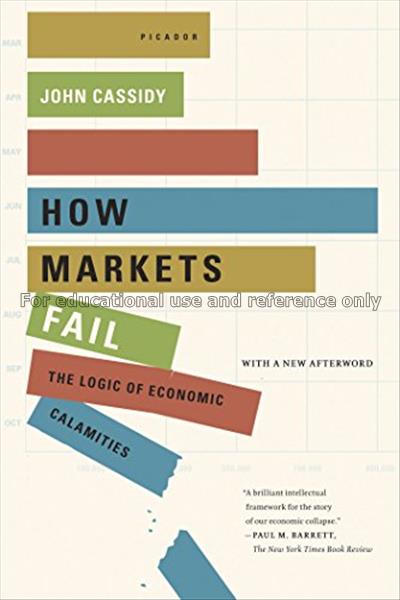How markets fail : the logic of economic calamities / John Cassidy
Author : Cassidy, John

In How Markets Fail, John Cassidy describes the rising influence of what he calls utopian economics—thinking that is blind to how real people act and that denies the many ways an unregulated free market can produce disastrous unintended consequences. He then looks to the leading edge of economic theory, including behavioral economics, to offer a new understanding of the economy—one that casts aside the old assumption that people and firms make decisions purely on the basis of rational self-interest. Taking the global financial crisis and current recession as his starting point, Cassidy explores a world in which everybody is connected and social contagion is the norm. In such an environment, he shows, individual behavioral biases and kinks—overconfidence, envy, copycat behavior, and myopia—often give rise to troubling macroeconomic phenomena, such as oil price spikes, CEO greed cycles, and boom-and-bust waves in the housing market. These are the inevitable outcomes of what Cassidy refers to as “rational irrationality”—self-serving behavior in a modern market setting
| Barcode | Call No. | Volume | Status | Due Date | Total Queue | |
|---|---|---|---|---|---|---|
| 1010076841 | EC00091 | Available | 0 | Please Login |
Related Book